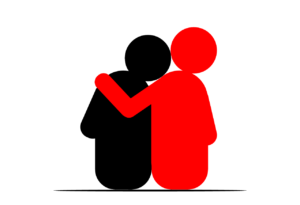 In a previous blog, I mentioned the importance of listening with empathy in order to achieve true “inside” understanding of how another person experiences the world. “Practice makes perfect” definitely applies to building your skill level, but I thought I’d provide some additional “tips” to maximize your learning curve.
In a previous blog, I mentioned the importance of listening with empathy in order to achieve true “inside” understanding of how another person experiences the world. “Practice makes perfect” definitely applies to building your skill level, but I thought I’d provide some additional “tips” to maximize your learning curve.
KNOW YOURSELF: It can be difficult to listen to someone when the emotional intensity is high and you find yourself overwhelmed by content. The truth is that each of us is different in terms of how well we can process someone else’s emotional pain. So, it’s important to know your “limits” and also what particular information might “trigger” you because you might have experienced something similar. In this sense, “self care” is important. Be mindful of your emotional vulnerabilities and remember the adage about “putting your own oxygen mask on first” before trying to help someone else. In this case your “oxygen mask” just means checking in with yourself about how you are doing.
ADOPT A CURIOUS AND OPEN STATE OF MIND: It is nearly impossible for any of us to listen to someone without bringing our own set of assumptions and possible biases into the mix. As much as possible, its important not to let these assumptions and biases affect your ability to empathize. So, stay curious and remember…this person is not you. If you truly don’t “get” what’s going on with someone. . don’t worry. What’s important is that you “get” what they are feeling, and you are willing to be present with them as they feel it.
BE WILLING TO BE WRONG ABOUT HOW YOU SEE SOMETHING
Often when we think that we really “do” understand what someone is going through, we feel compelled to offer some “advice” about what they should do. The truth is though, you may be right…but you could be wrong. Be sure you offer your “advice” as a “hypothesis” rather than a “conclusion”, if indeed advice is what is desired. Check this out too. If you do give your thoughts and you are not “hitting the mark” let the other person “correct” you, and you will both grow in understanding.
WATCH OUT FOR BURNOUT, PACE YOURSELF, AND FEED YOUR OWN EMOTIONAL LIFE
Those of us in the “helping” professions know all too well, how important it is for us to replenish our own emotional life so that we have enough to give to others. The best thing you can do in this regard is to engage in creative activities that bring you joy, satisfaction, and the ability to express yourself. This is not “selfishness” as some of us have been led to believe…but is instead quite the opposite in that you are allowing others to become the beneficiaries of your overflow as you convey hope, joy, and optimism to all you come into contact with. Positive feelings, after all, are very contagious. And it’s the best kind of contagion there is.




